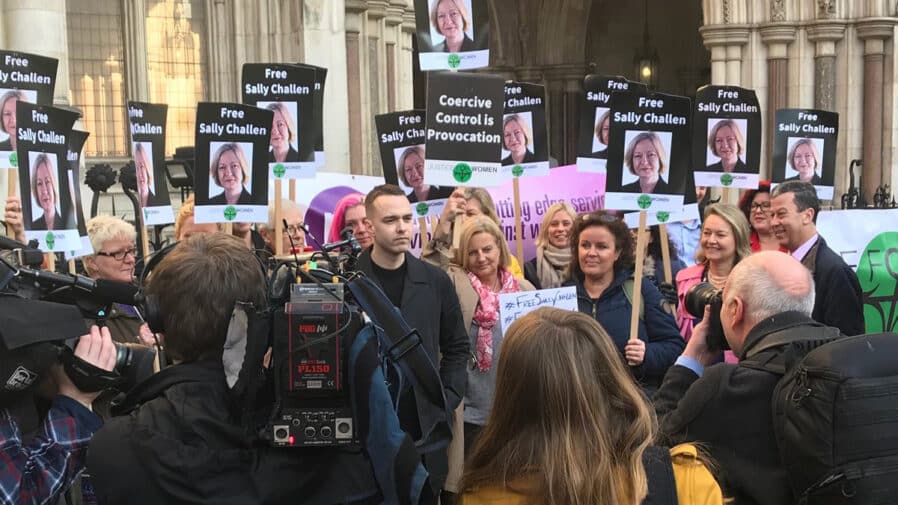

By Rebecca Anderson
Sally Challen, a woman wrongly convicted of murdering her husband in 2011, is one step closer to justice and freedom.
Challen, now aged 64, was sentenced to 22 years after striking her husband more than 20 times with a hammer. Her sentence was reduced to 18 years on appeal and on 1 March her murder conviction was finally overturned.
Her campaign has centred on the introduction of “coercive control” as grounds for defence in 2015, and an exposition of her husband’s controlling, manipulative and abusive behaviour over their 31 years of marriage. It is the first appeal of its kind.
Challen’s successful appeal raises important questions about the nature of domestic violence and how society, particularly the legal system, treats women who kill their abusive partners.
Challen’s family have campaigned for years against her conviction. Statements about her husband’s behaviour – controlling, manipulating, “gaslighting” and humiliating his partner – were not used at her original trial for fear that a jury would not look kindly at a defence hinging on the behaviour of the deceased. Gaslighting is the name given to an insidious psychological tactic of abusers to make their victims doubt their own memory and sanity through constant undermining.
The appeal was not as successful as Challen’s supporters hoped. The aim was to have her murder conviction commuted to manslaughter and lead to her release from prison after eight long years. Instead the panel of three judges overturned the murder conviction and ordered a retrial; the question of bail is yet to be decided.
Furthermore, the decision was based on the introduction of new evidence that Challen suffered from two psychological conditions when she killed her husband, but not explicitly acceptance that she was subject to coercive control. Therefore the question of whether the relatively new defence of coercive control will have any real teeth in the legal system remains unanswered until Challen’s retrial for murder.
We have seen time and again that social attitudes about rape have frustrated the effective use of rape laws, as juries have time and again disbelieved survivors. Then judges have handed down light sentences even where a conviction is achieved. We must expect that these same social attitudes will also prejudice the legal system against survivors of coercive control.
While the inclusion of coercive control in the law and the success of Challen’s appeal are significant steps forward for victims of domestic violence, we also need to challenge the basis of women’s oppression and the sexism that arises from our economic position.
Many women find that they simply cannot afford to leave and have nowhere to go. Local authority spending on refuges has been cut from £31.2m in 2010 to £23.9m, leading to 60% of women who apply for a safe bed not being helped. In 2017, Sunderland became the first council to cut its funding for refuges from £568,000 to zero in 2017.
Women’s wages have also stagnated, while precarious employment has disproportionately affected women. The latest government figures show the real gender pay gap is 17.9%, higher among 30-45 year olds, e.g. mothers.
In this case Sally Challen could afford to leave her husband, but she remained psychologically bound to him. However, making fundamental changes to the position of women in society through the socialisation of childcare, cooking and general domestic labour would raise their social status and confidence that flows from that. These are changes that we must fight for alongside legal advances.